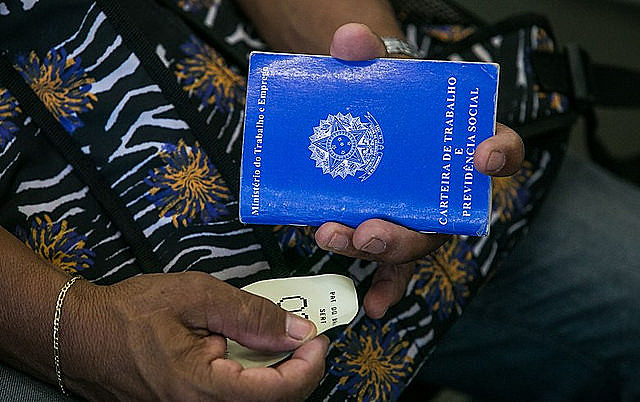A new study published on Tuesday revealed alarming wage inequalities between black and white workers in Brazil. The survey found black workers, holding a Bachelor's degree, received only 65 percent of what white workers earned.
"Irrespective of race, people with university degrees earn higher wages compared to people that only completed high school. We observed this for blacks and whites. However, for blacks, the growth in wages is lower relative to their white counterparts," said César Andaku, an economist at the Department of Statistics and Socioeconomic Studies (Dieese).
For example, in 2016, black workers without a high school diploma earned 92 percent of the total salary garnered by their white counterparts. Meanwhile, when examining wages between black and white workers with a high school diploma, blacks only earned 85 percent relative to the wages garnered by whites.
Half of Brazil's population is of African descent, but the country's public universities tend to reflect the Brazilian upper classes – who are mostly white.
In order to address Brazil’s alarming wage discrepancies, Andaku, one of the authors of the study, called for the implementation of public policies, which seek to provide greater access to higher education among the country’s black population.
The Workers Party (PT) government's, lead by former Presidents Luiz Inácio Lula da Silva and Dilma Rousseff, introduced a series of education reforms in order to guarantee greater increase access to higher education among the country’s black population.
"The government introduced a series of policies, which increased access to higher education among blacks. These were important and necessary steps – but it is still necessary to develop public policies that seek to improve the integration of blacks into the Brazilian labor market," Andaku added.
The authors went on to conclude that the wage differential is also explained due to the minimal presence of blacks in managerial positions. The report found there is a higher concentration of black people in traditionally low wage jobs, like construction and household work, and they fill the lowest levels of jobs with higher incomes in industry, services, public sector and university.
In the last two years, Brazil’s black population has disproportionately suffered due to slow economic growth and rising unemployment,
"Unemployment rates among black men and women is higher in compared to whites," Andaku stated.
In 2016, the unemployment rate among black Brazilians was 19.4 percent compared to 15.2 percent of whites. Meanwhile, from 2015 to 2016, the total unemployment rate for blacks increased from 14.9 percent to 19.4 percent, while that of whites increased from 12.0 percent to 15.2 percent.




